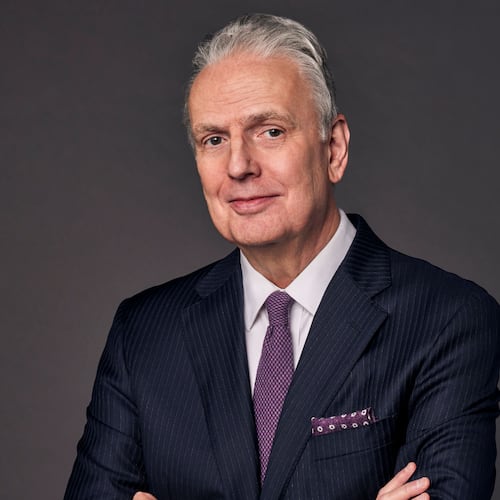The 1994 World Cup didn’t swing by Atlanta. Nine U.S. cities – New York, L.A., D.C., San Francisco, Boston, Chicago, Dallas, Orlando, Detroit – got games. We did not. It was no great loss.
That World Cup set records for attendance, but the event itself stirs no fond memories. The final ended when Roberto Baggio – the Divine Ponytail – sent his penalty into the Rose Bowl stands. It remains the only title match to end without an actual goal. Highlights from ‘94, such as they were, summon only a disconnect: Though the World Cup came to us, we weren’t sure what to make of it.
Come 2026, we’ll know what to make of it.
The 2024 Copa America – not the World Cup, but this hemisphere’s biggest quadrennial event – opened in Mercedes-Benz Stadium on Thursday. Attendance was 70,564. Argentina, the reigning world champ, beat Canada 2-nil. Lionel Messi didn’t manage a goal, though he could have had several. In the gracious way of big-time soccer, Argentina blamed the halting performance on newly installed grass.
Soccer-wise, this wasn’t the stadium’s first rodeo. Atlanta United has been playing in MBS to MLS’ biggest crowds since 2017. (United plays on artificial turf. Maybe that’s why it hasn’t won a home game since March. Though it did beat Messi’s Inter Miami 3-1 on the road.)
The U.S. national team will play Panama here on June 27. That’ll be it for Atlanta and Copa 2024. The 2026 World Cup will see eight games, a semifinal included, staged here.
Come 2026, the U.S. will be ready in a way it wasn’t in 1994. MLS wasn’t yet a thing then. (Its first season was in 1996.) Soccer wasn’t a fixture on any U.S. media outlet. Even a decade later, Euro 2004 – the rough equivalent of a Copa America – was available only on pay per view. We contrast that with Friday’s basic cable schedule:
Noon EDT: Poland-Austria, FS1.
3 p.m.: France-Netherlands, Fox.
8 p.m.: Peru-Chile, FS1.
Also available, though not basic: Ukraine-Slovakia on Fubo, 9 a.m.
We as a viewing nation weren’t wired for World Cup 1994 because we had little knowledge of what world soccer entailed. We had no access to the Premier League, the Bundesliga, La Liga or Serie A. By the end of the 20th Century, we’d begun to get glimpses of the UEFA Champions League, though the 1999 final – Manchester United 2, Bayern Munich 1 – aired at 3 p.m. Eastern on a Wednesday.
(I can recite the highlight. “AND SOLSJKAER HAS WON IT!!!!”)
The makeup of the U.S. has changed since 1994, and so have U.S. sports. MLS has marketed itself not to those who grew up watching baseball/basketball/American football but to a younger and broader audience ready for something different. If Mike Trout, the best baseball player of this century, knocked on your door, you mightn’t recognize him. If Messi did, your neighborhood would gather in 30 seconds flat.
Personal notes: I watched some of the ‘94 World Cup, but I didn’t quite get it. A few years later, I read a Vanity Fair piece about how London had gone crazy for Chelsea’s soccer team. Being a bit of an Anglophile – OK, more than a bit – I started watching (sometimes taping) the one Premier League game ESPN aired a week. I learned a lot about Blackburn Rovers.
This, I saw from afar, was different from national teams playing far from home in stadiums built for American football. This was intense. Soon I had a favorite team (Man United) and player (Beckham). It wasn’t always easy to follow – in pre-WiFi days, I learned United clinched the ‘97 Premier League crown by reading scores in USA Today two days after the fact – but I’d gotten the bug.
I bought a shortwave radio to listen to the BBC World Service game of the week. (I’d hang the antenna out the car window en route to college football games.) I knew who Robbie Earle and Robbie Mustoe were long before they were NBC’s Two Robbies. I started with England, but my interest got wider and wider. I follow baseball/basketball/American football because it’s the job. I watch soccer because I love it.
And, even though I don’t fit the MLS demographic – I’m no longer young, and I was never hip – I know I’m not alone. In 1994, soccer in the U.S. wasn’t even a niche sport. Thirty years later, it’s mainstream. Atlanta United draws bigger crowds than the Braves. We’re HQ for U.S. Soccer. Messi came to town and stopped traffic. (Traffic often halts here, but not usually for a single person.)
We’ve had a lot of stuff in Atlanta – Super Bowls, Final Fours, even an Olympiad – but the soccer summer of ‘26 could be our biggest deal yet. Here’s hoping the grass is greener then.
The above is part of a regular exercise available to all who register on AJC.com for our free Sports Daily newsletter. The full Bradley’s Buzz, which includes extras like a weekly poll and pithy quotes, arrives via email around 1:30 p.m. on Monday, Wednesday and Friday.
Go to the AJC.com home page. Click on “newsletters” at the bottom. Click on “Sports Daily.” You’ll need to enter your email address. Thanks, folks.
About the Author
Keep Reading
The Latest
Featured


